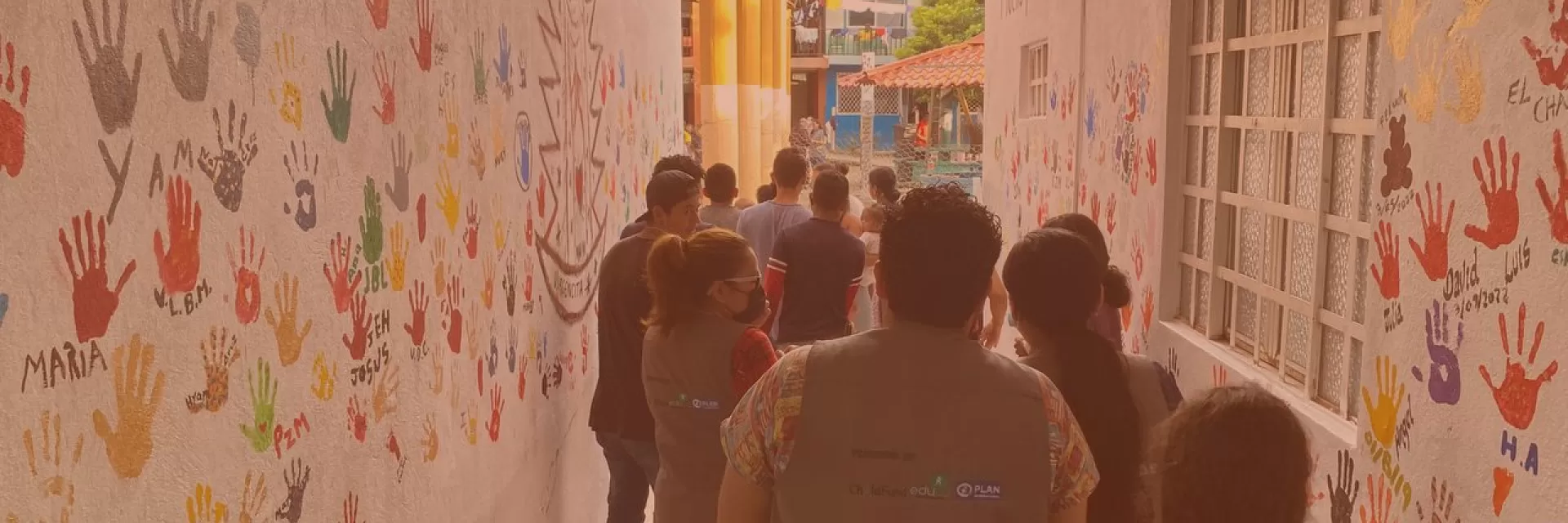During our solidarity trip to Southern Mexico in November, seven participants from partner organizations joined us. The following is a reflection from Sofia Rosales-Zeledon, a Grassroots Advocacy Associate with the American Immigration Lawyers Association (AILA). A young Latinx professional, organizer, and community activist, she is passionate about immigrants' rights and racial equity. As a Grassroots Advocacy Associate, she helps AILA members engage with national advocacy campaigns around AILA's priority areas.
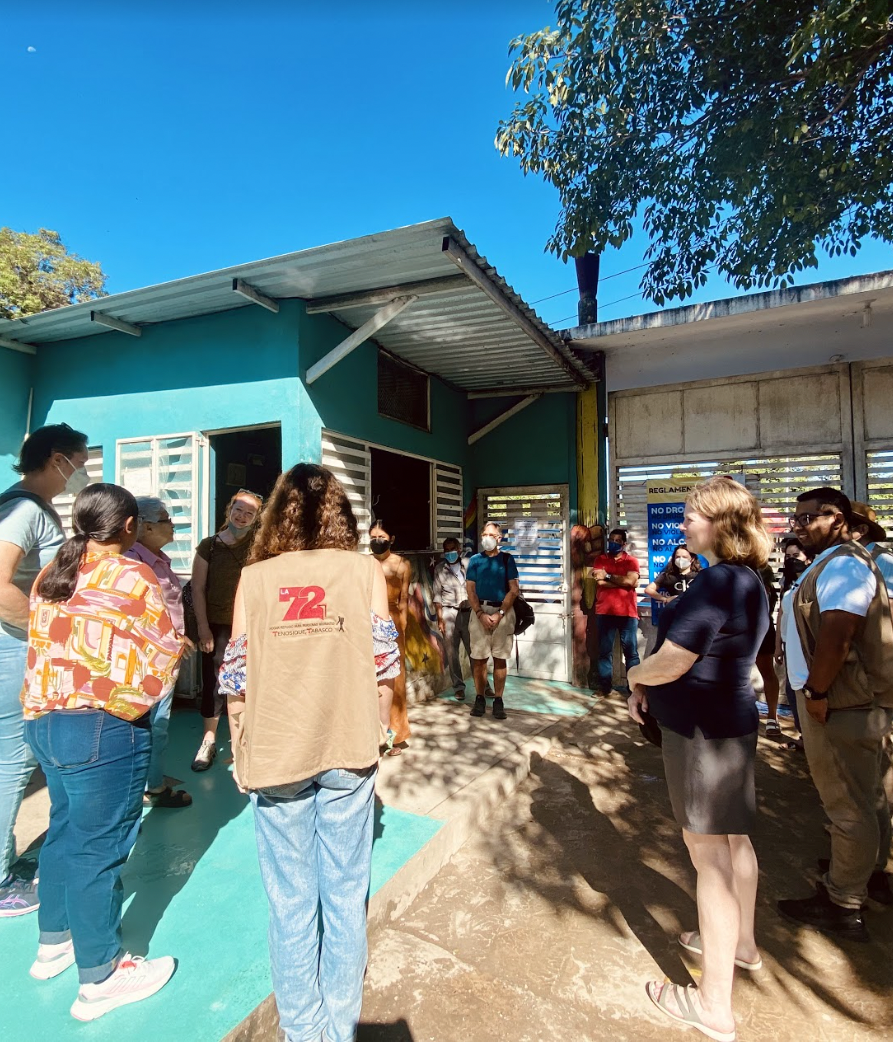 The U.S and Mexico’s bilateral strategies to deter migrants from reaching the US-Mexio border begins 1,000 miles south, at the Southern Mexico-Guatemala border. At La 72, children laughed and played, while their parents, siblings, aunts, and friends, shared their stories about what led them to flee their home countries and hopes to restart and ultimately integrate into American communities. The stories ranged on a variety of unsafe conditions: political persecution, extortion, economic instability, gang violence and threats, and domestic violence. Many migrants at the La 72 shelter are in the process of seeking refuge in Mexico, under the Mexican Commission for Refugee Assistance program (COMAR). However, they express their fears for remaining in Mexico, where they do not feel safe and believe they would be unable to build a stable and safe life for their families. Many hope to reunite with family members that are in the United States and not Mexico. The likelihood of being accepted as a refugee in Mexico is also uncertain, especially for domestic violence survivors, and unsurprisingly, Haitians.
The U.S and Mexico’s bilateral strategies to deter migrants from reaching the US-Mexio border begins 1,000 miles south, at the Southern Mexico-Guatemala border. At La 72, children laughed and played, while their parents, siblings, aunts, and friends, shared their stories about what led them to flee their home countries and hopes to restart and ultimately integrate into American communities. The stories ranged on a variety of unsafe conditions: political persecution, extortion, economic instability, gang violence and threats, and domestic violence. Many migrants at the La 72 shelter are in the process of seeking refuge in Mexico, under the Mexican Commission for Refugee Assistance program (COMAR). However, they express their fears for remaining in Mexico, where they do not feel safe and believe they would be unable to build a stable and safe life for their families. Many hope to reunite with family members that are in the United States and not Mexico. The likelihood of being accepted as a refugee in Mexico is also uncertain, especially for domestic violence survivors, and unsurprisingly, Haitians.
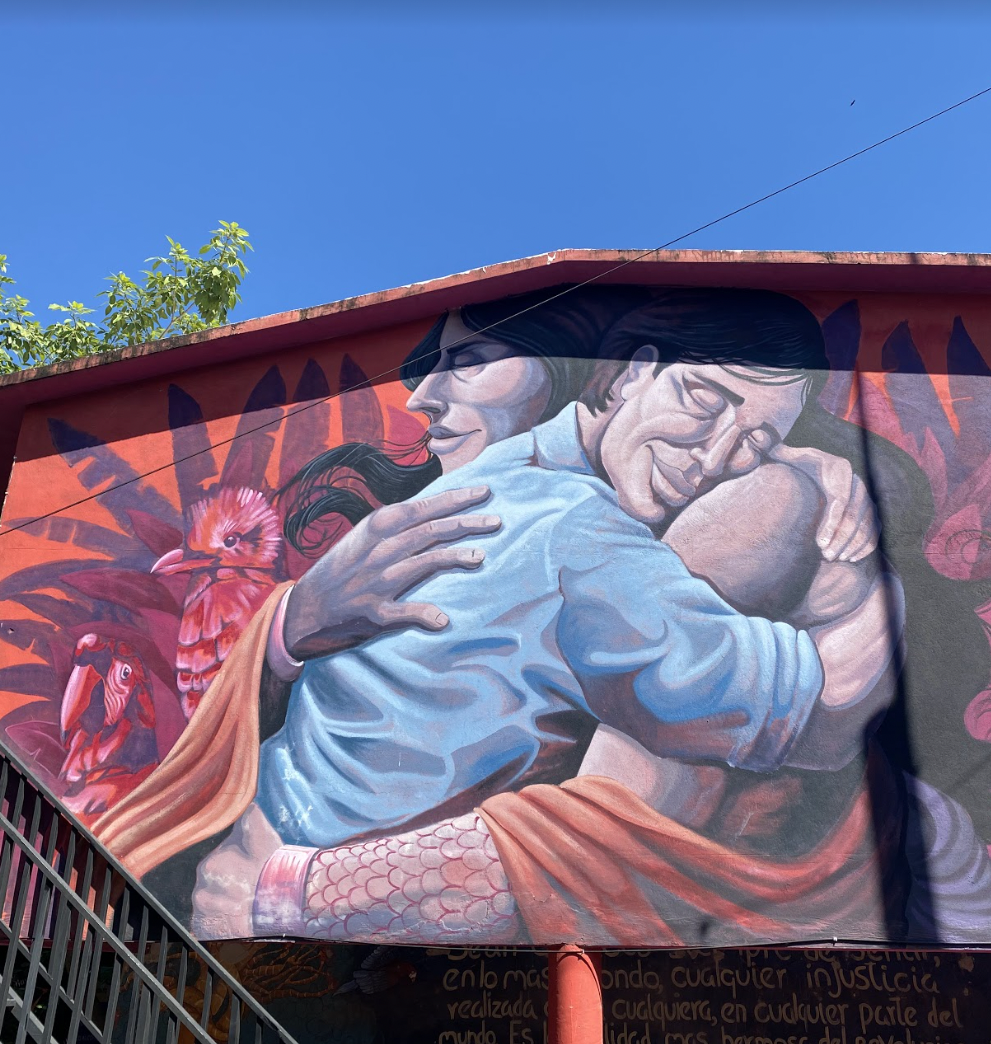 Among many mixed feelings of gratitude, appreciation, passion, and sometimes even discouragement that I feel after traveling to Tenosique, Mexico and meeting with migrants at the La 72 shelter, I feel that it was, most importantly, a responsibility. As a person who works in the immigration advocacy and policy space, the reality is that I am so far detached from the realities of humans in transit who are in search of safety and protection. I am far detached from the authentic grassroots work of volunteers, social workers, and organizers, who support asylum seekers during their journeys. I am far detached from the realities of the daily traumas, fears, and ultimate perseverance of humans in mobility in search of the American dream.
Among many mixed feelings of gratitude, appreciation, passion, and sometimes even discouragement that I feel after traveling to Tenosique, Mexico and meeting with migrants at the La 72 shelter, I feel that it was, most importantly, a responsibility. As a person who works in the immigration advocacy and policy space, the reality is that I am so far detached from the realities of humans in transit who are in search of safety and protection. I am far detached from the authentic grassroots work of volunteers, social workers, and organizers, who support asylum seekers during their journeys. I am far detached from the realities of the daily traumas, fears, and ultimate perseverance of humans in mobility in search of the American dream.
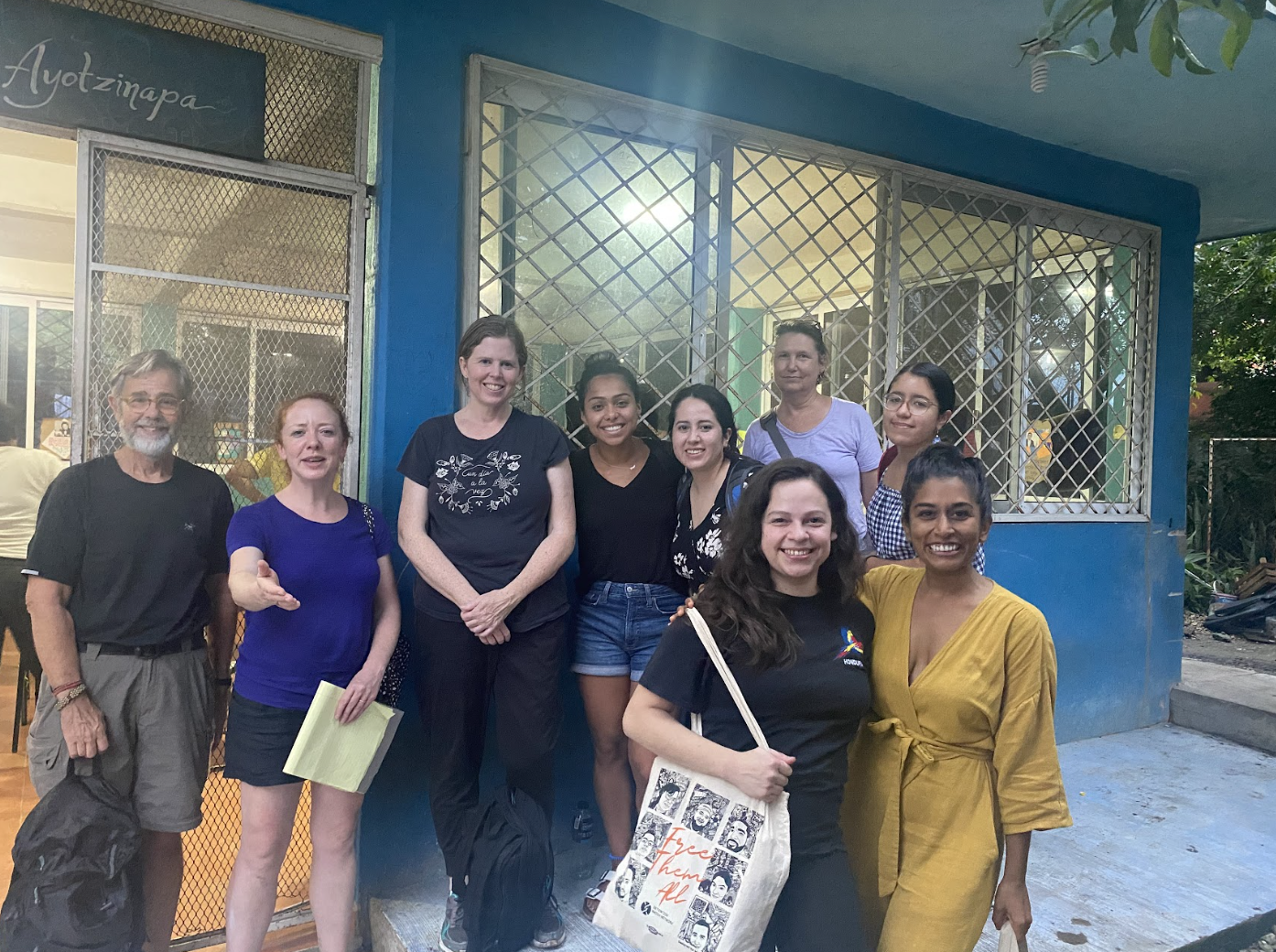 As US-based immigration advocates, we often say we are working for immigrants, to create fairer and more humane immigration policies. What we need to do is not work for them but fight alongside them. Where we start is by working in solidarity with people in search of safety by getting to know them and their stories, by using our voices in positions of influence to continue to empower theirs. We need to meet them where they are, and the reality is, that their battles against our broken immigration system do not begin on U.S. soil but on Mexican land, where U.S. pressure of Mexican migration enforcement is prevalent. That is if they are lucky enough to enter Mexico, after enduring the risky journey through the Northern Triangle, and many beginning in Venezuela.
As US-based immigration advocates, we often say we are working for immigrants, to create fairer and more humane immigration policies. What we need to do is not work for them but fight alongside them. Where we start is by working in solidarity with people in search of safety by getting to know them and their stories, by using our voices in positions of influence to continue to empower theirs. We need to meet them where they are, and the reality is, that their battles against our broken immigration system do not begin on U.S. soil but on Mexican land, where U.S. pressure of Mexican migration enforcement is prevalent. That is if they are lucky enough to enter Mexico, after enduring the risky journey through the Northern Triangle, and many beginning in Venezuela.
The 1,000 miles stretch from the Southern Mexico-Guatemala border to Texas ports of entry is a dangerous trek for humans in mobility who are in search of safety and protection in the United States. Barriers to asylum processing have now left asylum seekers hanging in the balance. Title 42 has left migrants in Mexico desperate for answers, but nonetheless hopeful that their journey will soon end with proper processing and be treated with dignity and respect. 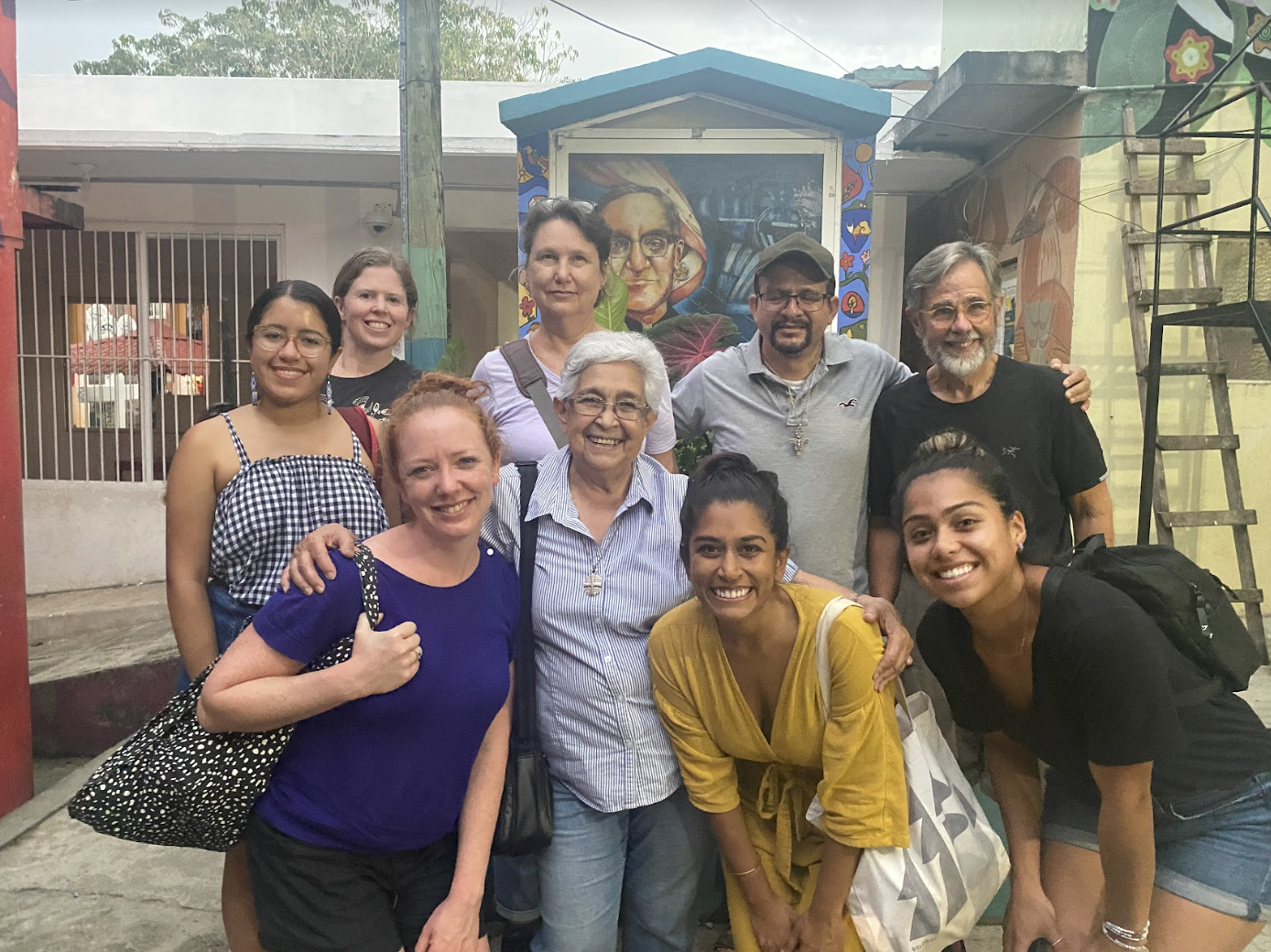
Our job as immigration advocates is to meet the storytellers that ignite our passion for the work. To have their voices heard through our work with policymakers and decision-makers. To bring their stories to Capitol Hill. To go to the frontlines and see the impacts of anti-immigrant policies and learn from the folks on the ground supporting asylum seekers on their journeys.
